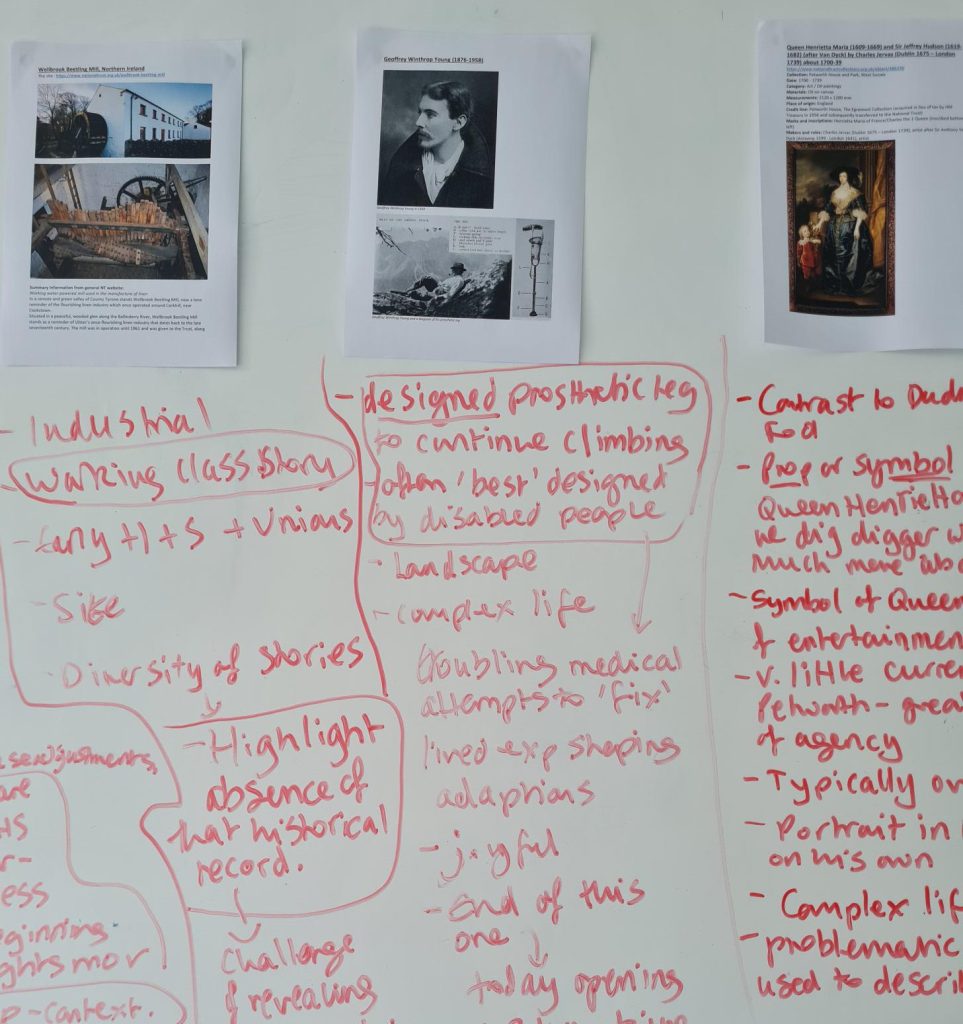Everywhere and Nowhere emerged from a collaborative process of thinking, researching and taking action with the National Trust. The research collaboration ran between 2021-2023, and set out to explore the rich and multiple connections that the Trust’s historic properties and landscapes across England, Wales and Northern Ireland have with previously unexplored and untold histories of disability.
We asked:
How can we identify histories of disability across National Trust sites and present them in ethically informed ways that enrich everyone’s understanding of both our sites’ histories and their contemporary resonance?
How can we carry out this work ethically and inclusively, placing expertise derived from lived experience of disability at the heart of the process?
How can we share disability stories in ways that reflect leading edge accessibility practice?
Methodology
We convened an international group of disability experts (including historians, researchers and artists) to work collaboratively with the Trust to investigate how stories related to the lives of disabled people in the past can be ethically researched and presented in new ways. Over 18 months we worked with Trust staff at national, regional and property-level to uncover objects, stories and sites and we received over 80 examples which our disability experts shortlisted down to ten.
As we worked together to explore and interpret these objects, sites and stories, the group generated an ethical framework to guide its work informed by scholarship as well as the varied expertise within the group.
Based on the research and using a range of techniques, including pair writing (interpretive text drafted by two or more people and drawing on different forms of expertise including insights derived from lived experience), we created the compelling public-facing film – Everywhere and Nowhere.

Notes from an Everywhere and Nowhere pair writing workshop